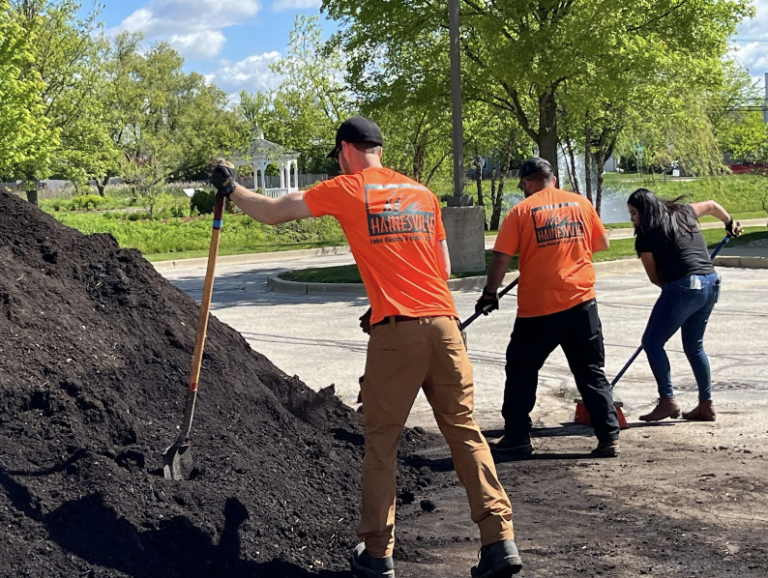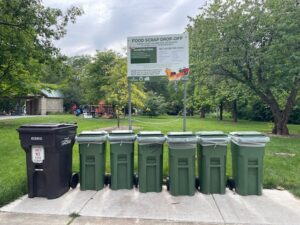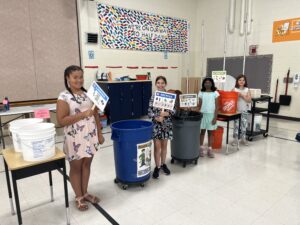
Last month, Seven Generations Ahead’s (SGA) Jen Nelson and Becky Brodsky, along with other composting experts, shared about the progress being made in Illinois around community, residential and school food scrap composting at Go Green Illinois’ May meeting.
 The meeting had 75 registrants from nearly 30 communities across Chicagoland and beyond. Nelson, Director of SGA’s Food Waste Reduction and Composting program, began by presenting the connection between composting and climate action. Food waste is the single largest material sent to landfills, where it produces methane as it breaks down. Methane is a potent greenhouse gas which makes food waste a big contributor to the climate crisis. Therefore, reducing food waste is one of the most important steps an individual can take to reduce their climate impact. Nelson pointed out that municipal climate policies need to include composting programs to create accountability for mitigating this source of emissions.
The meeting had 75 registrants from nearly 30 communities across Chicagoland and beyond. Nelson, Director of SGA’s Food Waste Reduction and Composting program, began by presenting the connection between composting and climate action. Food waste is the single largest material sent to landfills, where it produces methane as it breaks down. Methane is a potent greenhouse gas which makes food waste a big contributor to the climate crisis. Therefore, reducing food waste is one of the most important steps an individual can take to reduce their climate impact. Nelson pointed out that municipal climate policies need to include composting programs to create accountability for mitigating this source of emissions.
Composting and using finished compost is a growing trend in communities around Illinois, but more education and outreach are needed to increase backyard composting and participation in existing programs. Community “go green” groups can help with this. The Illinois Food Scrap & Composting Coalition shares many resources to get Illinois residents started composting.

Brodsky, SGA’s Zero Waste Schools Program Manager, shifted gears from residential composting to school composting. Schools can participate in commercial composting, onsite composting, or both. Commercial composting is less labor intensive and allows the school to divert more food scraps, so this is where many schools choose to start. It gives students something they can do on a daily basis to take climate action and provides leadership opportunities for students who help oversee composting in the cafeteria. It also creates curricular opportunities, making the cafeteria a living laboratory for science and environmental education.
Brodsky recommends that schools interested in composting begin by building a zero waste team with stakeholders at all levels – students, parents, teachers, custodial and lunchroom staff, and administrators. Systematizing composting processes at the district level helps programs run more effectively and scale more efficiently across multiple schools. Brodsky suggests starting with elementary schools, where students get particularly excited about composting and are more open to change. Although she notes that it’s important for all school stakeholders to be educated about the how and the why of composting, not just the students. The key to building a school composting program with longevity is to ensure that it’s not just run by an individual, but that it’s overseen by a robust team.
With so many good reasons to compost and so many ways to do it, the only thing holding many people back is knowing how to get started. Check out the recording of Go Green Illinois’ May meeting, and get inspired to take action in your community or school!
